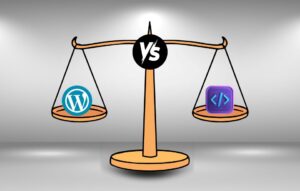So, what is your stance on WordPress vs coding? The answer depends on your goals.
Want a quick, easy website? Go with WordPress.
Need complete flexibility, performance, and scalability? Coding is your path.
But for many users, WordPress vs building from scratch shows a clear advantage in time, cost, and ease—especially when deadlines and budgets matter.


